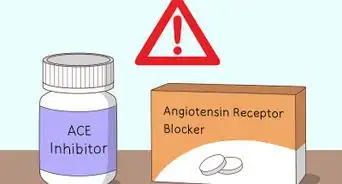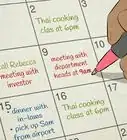This article was co-authored by Desiree Panlilio. Desiree Panlilio is a Teen Life Coach and the Owner of Encouraging Teens, LLC. With over three years of experience, she specializes in helping teens and young adults define roles, set goals, develop healthy academic and personal habits, grow in leadership potential, and create their life paths. Desiree holds a BSN in Nursing from The University of Victoria and an MA in Human Services Counseling with a concentration in Life Coaching from Liberty University.
There are 13 references cited in this article, which can be found at the bottom of the page.
This article has been viewed 51,582 times.
If you find that you’re struggling to get everything done in the evening after school, sketching out a routine might help. Be sure you plan in all the tasks you have to do, as well as leaving some time to relax and unwind. Following a routine can help you learn to manage your time and get on top of all your schoolwork.
Steps
Creating an After School Routine
-
1Map out your after school time. The first thing to do if you are making an after school routine is to map out the time between leaving school and going to bed. This may be fewer hours than you imagined, so it’s important to have a clear picture of your evenings. If you leave school at 3pm and have to be in bed at 9pm, you have 6 hours to get everything done, as well as having some time to relax and unwind.[1]
- You can write down a timetable on a piece of paper or on the computer.
- Break each hour down into smaller chunks so you can be more precise in your planning.
-
2Write down what you need to get done. Before you start to fill in your schedule, you should take some time to write down all the different things you will typically need to get done after school. These might not be the same every day, but start by focussing on the general tasks that you have to complete.[2] These might include:
- Doing your homework.
- Completing your chores around the house.
- Eating your dinner.
- Taking a bath or shower.
- Preparing your bag for the next school day.
Advertisement -
3Prioritize your tasks. Once you have written down all your various tasks, you can get to work prioritizing and organising them. You can start by breaking your list into single tasks, recurring tasks, and specific projects. You will have to do single one-off tasks as and when they appear, but you can try to organise time for recurring tasks and specific projects more carefully.
- You might find it helpful to label these tasks as priority A, B, or C.
- If you do this, be aware, that you may find that priority C tasks get overlooked.[3]
- An alternative is to organise these tasks by the deadlines. If something does not have a specific deadline, you can apply one yourself.
- This could be a short-term or longer-term deadline. For example, you might say you have to get your daily homework done by 8pm, or you that you need to finish your project by the end of the month.
-
4Start filling in your schedule. Now you have got a clearer picture of the essential tasks you need to complete each evening, you can transfer these onto your schedule.[4] The central event will probably be eating your dinner, so write this in first at the time you usually eat. You will then have two sections, before dinner and after dinner.
- Add in any regular after school commitments you have. This could include soccer practice, or music lessons.
- If you have lots of different commitments on different days of the week, make a separate schedule for each day.
Managing the Essentials
-
1Be active straight after school. It’s a good idea to structure your routine around some key landmarks that will help you keep active and productive. By the time you get out of school you might be a bit bored and restless, so it’s a good idea to do something physical at the start of your routine. This will help you blow out the cobwebs and get the blood flowing again after being in a classroom all day.
- Playing sports with your friends immediately after school is a good way to decompress after class.
- It can help you clear your mind and unwind.
- Having a defined transition time from school to home is an important part of a successful routine.[5]
-
2Have a healthy snack after school. At the end of the school day you might be feeling a bit hungry and restless, so it’s a good idea to combine your after school activity with a nice healthy snack.[6] This will give you a little energy to get you through until dinner. A piece of fruit, such as an apple or a banana are great healthy snacks that are packed with energy.[7]
-
3Do homework after dinner. Often the best time to do your homework is straight after dinner. Go straight from the dinner table to your homework and don’t get distracted by any other activities. Sit down and try to get through all your work in one sitting. By now you will have had a good break after school, and will be ready to do some work.
- You will have time to relax again before bed after you have completed your homework.
- This is the time to watch some TV, read, or just hang around with your family.
-
4Relax before bed. It’s important you put aside some time to really relax after you have done your homework and before you go to bed.[8] Spending some time just chatting with your family, or watching some TV will help you switch off from work before you go to bed. It can also be an added motivation to get your homework done in time to watch your favourite TV show. Be sure to give yourself time away from screens before you go to bed.
- Don’t forget to schedule time to wash before bed.
- If you have a nice warm bath you can include this as part of your relaxing time before bed.
- Relaxing before bed will help you get to sleep more easily and have a more restful night.[9]
-
5Prepare for the next day before you go to bed. It’s good to get on top of your daily routine, and start the day as well as you finish it. You can do this by ensuring you take a few minutes to prepare your bag for the next school day before you go to bed.[10] You will be able to be a bit more relaxed in the morning if you have organised your books and any sports gear you need before you go to bed.
- If you are rushing around trying to find things in the morning, you will be getting stressed out before you even leave the house.
- Being prepared means you will have time to sit down and have a good breakfast before you head out.
Sticking to Your Routine
-
1Don’t try to do too much. One of the keys to having a successful routine is not trying to fit too much into it. A good routine is one that structures your time in order to help take pressure off you, not one that demands a lot and actually increases the pressure on you. Be realistic when you are drawing up and following your routine.
- Make sure you allow yourself time to readjust when you leave school and go home.[11]
- Make an adjustment to your routine if you find that your homework is taking longer than you expected.
- Trying to do too many activities will just tire you out, and you will get less done than if you had a more modest routine.
-
2Allow some flexibility. If you want your routine to last, you will have to be flexible with it. Your commitments will change over time, as will the time it takes you to complete certain regular tasks. Learning how to adapt and be flexible, while still getting all your essential tasks done, is part of growing up and managing your time.
- You have to try and find a balance between being flexible and consistent.[12]
- Being aware of things before they happen will help you plan ahead and prioritise.
- For example, if you have some deadlines coming up at school, take this into account early. Alter your routine to give you time to study without sacrificing all your fun and relaxing time.
-
3Avoid procrastination. If you have a lot to do, you may find your mind wandering or distractions pulling you away from your routine. To make your routine work, and to stick to it, you need to be able to overcome procrastination.[13] Learning self-discipline and self-control will help you to develop and become more independent and in control of your life. If you are struggling to stick to your routine, try to teach yourself more self-discipline by scheduling a small task for a particular time of day, and stick to it for two months.
- For example, if you are learning Spanish, set yourself twenty minutes of vocabulary practice at 6pm every night.
- Wait for the set time, and try to stick to it exactly. Once you have done this for a few weeks you will feel proud of your self-control.
- Breaking tasks down into smaller chunks can help you overcome procrastination and make steady progress through your routine.[14]
-
4Recognise the benefits of a routine. You might find it easier to stick to a routine if you understand the different ways it can benefit you. Following a routine will help you learn self-discipline as well as time management skills.[15] This will help you to become more independent and take more control over your life. Finding the right balance of work, play and nutrition will help you stay healthy and get a good night’s sleep.[16]
- A good routine should have a mix of active and quiet periods, as well as activities done alone and done in a group.
- Also try to mix indoor and outdoor activities when it is possible.[17]
Example After School Routine
Expert Q&A
-
QuestionWhat should I do after school day?
 Desiree PanlilioDesiree Panlilio is a Teen Life Coach and the Owner of Encouraging Teens, LLC. With over three years of experience, she specializes in helping teens and young adults define roles, set goals, develop healthy academic and personal habits, grow in leadership potential, and create their life paths. Desiree holds a BSN in Nursing from The University of Victoria and an MA in Human Services Counseling with a concentration in Life Coaching from Liberty University.
Desiree PanlilioDesiree Panlilio is a Teen Life Coach and the Owner of Encouraging Teens, LLC. With over three years of experience, she specializes in helping teens and young adults define roles, set goals, develop healthy academic and personal habits, grow in leadership potential, and create their life paths. Desiree holds a BSN in Nursing from The University of Victoria and an MA in Human Services Counseling with a concentration in Life Coaching from Liberty University.
Teen Life Coach Take some to relax and decompress when you get home! Do an activity that you really enjoy for about 30 minutes, like scrolling through social media, listening to music, or going for a run.
Take some to relax and decompress when you get home! Do an activity that you really enjoy for about 30 minutes, like scrolling through social media, listening to music, or going for a run. -
QuestionHow do kids make an after school schedule?
 Desiree PanlilioDesiree Panlilio is a Teen Life Coach and the Owner of Encouraging Teens, LLC. With over three years of experience, she specializes in helping teens and young adults define roles, set goals, develop healthy academic and personal habits, grow in leadership potential, and create their life paths. Desiree holds a BSN in Nursing from The University of Victoria and an MA in Human Services Counseling with a concentration in Life Coaching from Liberty University.
Desiree PanlilioDesiree Panlilio is a Teen Life Coach and the Owner of Encouraging Teens, LLC. With over three years of experience, she specializes in helping teens and young adults define roles, set goals, develop healthy academic and personal habits, grow in leadership potential, and create their life paths. Desiree holds a BSN in Nursing from The University of Victoria and an MA in Human Services Counseling with a concentration in Life Coaching from Liberty University.
Teen Life Coach Create realistic timetables for everything you do after school. Estimate how much time you'll need to do homework, and factor in any time you take to relax and decompress. Set aside enough time for dinner, too.
Create realistic timetables for everything you do after school. Estimate how much time you'll need to do homework, and factor in any time you take to relax and decompress. Set aside enough time for dinner, too.
References
- ↑ Desiree Panlilio. Teen Life Coach. Expert Interview. 12 October 2021.
- ↑ Desiree Panlilio. Teen Life Coach. Expert Interview. 12 October 2021.
- ↑ https://success.oregonstate.edu/learning/prioritize
- ↑ Desiree Panlilio. Teen Life Coach. Expert Interview. 12 October 2021.
- ↑ https://www.uopeople.edu/blog/10-best-time-management-tips-for-students/
- ↑ https://www.gse.harvard.edu/news/uk/18/07/let-it-grow
- ↑ https://www.health.harvard.edu/blog/nutritional-psychiatry-your-brain-on-food-201511168626
- ↑ https://www.psychologytoday.com/us/blog/notes-self/201310/how-relax
- ↑ https://www.sleepfoundation.org/how-sleep-works/why-do-we-need-sleep
- ↑ https://learningcenter.unc.edu/tips-and-tools/changing-habits/
- ↑ https://uhs.umich.edu/tenthings
- ↑ https://www.stetson.edu/administration/academic-success/media/STUDY%20SCHEDULE.pdf
- ↑ Desiree Panlilio. Teen Life Coach. Expert Interview. 12 October 2021.
- ↑ https://students.unimelb.edu.au/academic-skills/resources/learning-online/10-tips-to-manage-time-and-tasks
- ↑ Desiree Panlilio. Teen Life Coach. Expert Interview. 12 October 2021.
- ↑ https://www.cdu.edu.au/launchpad/future-study/six-tips-balancing-work-and-study
- ↑ https://medicine.umich.edu/dept/psychiatry/michigan-psychiatry-resources-covid-19/your-lifestyle/importance-physical-activity-exercise-during-covid-19-pandemic
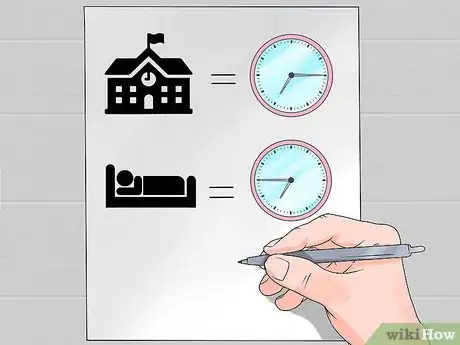

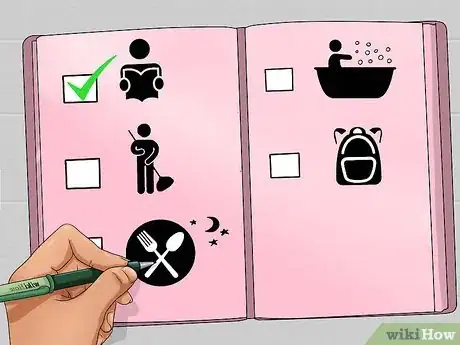
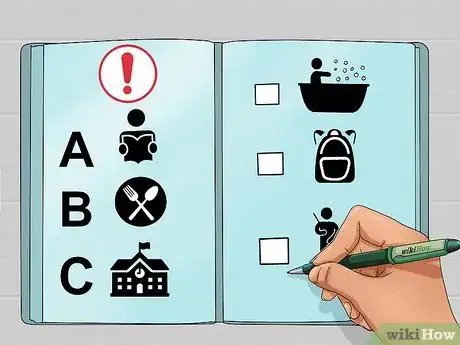
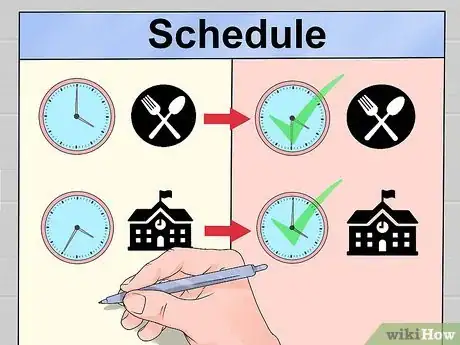
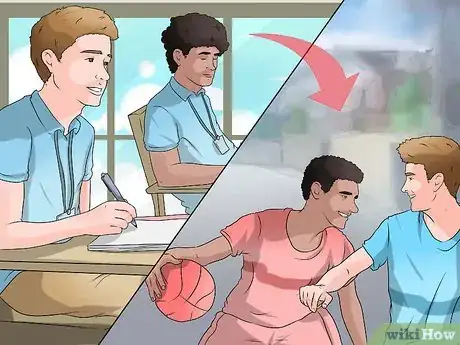


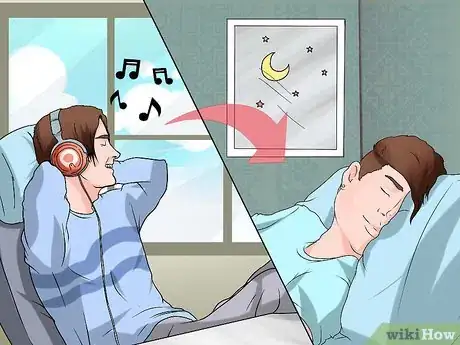


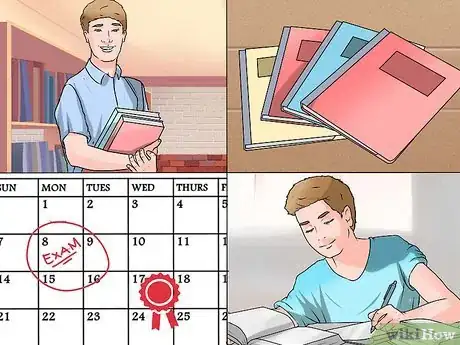


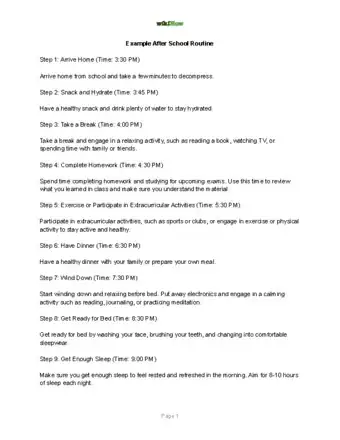
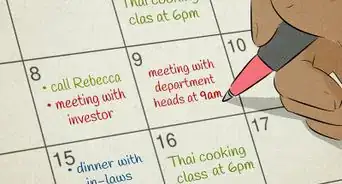



-Step-16-Version-4.webp)


